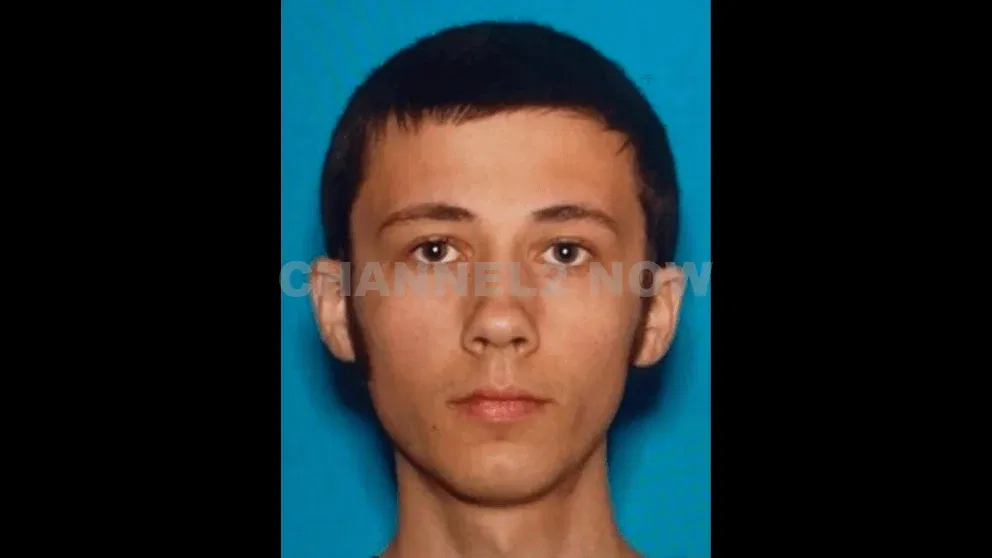Federal authorities have released the first official photograph of Guy Edward Bartkus, the 25-year-old man from Twentynine Palms, California, who has been conclusively identified as the sole suspect in the devastating bombing that took place outside a Palm Springs fertility clinic on Saturday. Bartkus perished in the explosion, which left four others injured and inflicted severe structural damage on the medical facility, the American Reproductive Centers (ARC), known for providing in-vitro fertilization (IVF), egg retrieval, embryo freezing, and other fertility-related services.
The blast, which occurred shortly before 11 a.m. on North Indian Canyon Drive, shocked the community and has since been officially classified by the FBI as an “intentional act of terrorism.” Law enforcement sources have confirmed that Bartkus detonated an explosive device inside his vehicle, which had been parked directly outside the front entrance of the clinic. The explosion sent debris flying across the surrounding area, shattered windows, and prompted immediate evacuation procedures.
Guy Edward Bartkus, according to FBI officials and information gleaned from digital evidence, adhered to a radical ideology known as “pro-mortalism.” This belief system, which is closely tied to anti-natalist philosophy, posits that life is inherently suffering and that people do not—and cannot—consent to being born. Anti-natalists argue that procreation is a morally indefensible act, and pro-mortalists take that concept further, often advocating the view that preventing life, even by extreme means, is an ethical imperative. Bartkus reportedly viewed IVF clinics as a direct affront to these views, believing them to be mechanisms of involuntary life creation that contributed to what he saw as the global perpetuation of suffering.
In a chilling development, investigators recovered both written and audio recordings of Bartkus espousing his views. These manifestos, discovered posthumously in both his destroyed vehicle and his Twentynine Palms residence, reportedly detail not only his grievances against reproductive medicine but also his broader existential and philosophical outlook. Law enforcement officials have confirmed the authenticity of these documents and believe them to be central to understanding the motive behind the attack.
In the aftermath of the explosion, FBI tactical teams, supported by local law enforcement and bomb squad specialists, executed a large-scale operation at Bartkus’ home on Adobe Road in Twentynine Palms. The surrounding area was quickly declared a “blast zone” and evacuated over concerns that secondary explosive devices may have been present. During the sweep, authorities conducted at least one controlled detonation—witnesses reported hearing a loud explosion preceded by the warning cry “fire in the hole,” commonly issued before deliberate detonations by bomb disposal teams.
Among the items recovered near Bartkus’ scorched vehicle at the bombing site were two firearms: an AK-47-style rifle and an AR-style rifle, along with numerous rounds of ammunition. Though it remains unconfirmed whether similar weapons or explosives were found inside his residence, officials have acknowledged the presence of potentially hazardous materials and the ongoing nature of forensic testing. The FBI emphasized that the investigation is being conducted in partnership with state and local agencies and will explore every possible lead.
The scene of the bombing presented a haunting visual tableau: photos and videos taken in the moments following the detonation revealed a street littered with debris, broken glass, and scorched building facades. Smoke was visible rising into the sky from miles away, and local residents described the acrid scent that hung in the air for hours after the explosion. One witness, who lives near the clinic, described the blast as powerful enough to rattle windows and trigger car alarms more than three miles from the epicenter.
Social media quickly lit up with firsthand accounts and speculative information, some of which suggested that human remains had been found near the scene. While officials have not confirmed these specific details, they have verified that Bartkus was the only individual to die in the explosion, and that four others sustained injuries that, while serious, are not believed to be life-threatening.
Dr. Maher Abdallah, the fertility specialist who runs the American Reproductive Centers, expressed both relief and gratitude in a statement issued to the Associated Press. “Thank God today happened to be a day that we had no patients scheduled in the front office,” he said. “The IVF laboratory is fully intact, and all stored embryos have been protected. The emotional and psychological toll of this incident is immense, but we are relieved beyond words that no lives were lost among our staff or clientele.”
Nearby residents experienced a different kind of trauma. Thomas Bickel, who lives in close proximity to Bartkus’ Adobe Road residence, recalled the panic and confusion that followed the initial law enforcement response. “There was just a bunch of sheriff’s deputies going door to door, telling everyone to leave immediately,” Bickel told reporters. “I have kids that come hang out at my house sometimes, and knowing that someone was apparently building a bomb that close is pretty scary.”
During a press briefing on Saturday evening, FBI Assistant Director Akil Davis confirmed that Bartkus acted alone and that no additional suspects were currently being sought. Davis further explained that the agency is dedicating significant resources to examine every aspect of Bartkus’ background, digital footprint, ideological leanings, and any potential warning signs that may have preceded the attack.
The materials uncovered during the ongoing investigation are expected to undergo extensive forensic analysis. Federal authorities have not ruled out the possibility that Bartkus had communicated with like-minded individuals online or consumed radical content that may have contributed to the development of his extremist beliefs. Though early indications suggest he did not have a known criminal history or formal ties to terrorist organizations, officials remain cautious and committed to a comprehensive review of all relevant information.
Experts in counterterrorism and domestic extremism have weighed in on the ideological dimension of the case, noting that pro-mortalist and anti-natalist philosophies, while typically obscure and academic, can be weaponized by individuals prone to radicalization. Dr. Irene Mallory, a professor of sociology at UC Riverside who specializes in fringe belief systems and violence, commented that while the vast majority of those who hold anti-natalist views are nonviolent and philosophical, the case of Bartkus represents a rare and alarming mutation of this ideology into action. “This attack may represent a new form of ideologically driven violence,” she said, “one that is not motivated by religion, nationalism, or politics in the traditional sense, but by existential belief systems that reject the very premise of life itself.”
As Palm Springs begins the slow process of recovery, questions about security, ideological extremism, and the vulnerability of medical facilities to acts of domestic terror loom large. The bombing has prompted renewed discussions among law enforcement agencies about how to monitor and preempt threats from lone-wolf actors whose motivations may be difficult to categorize using traditional frameworks.
In the meantime, the American Reproductive Centers remains closed as structural repairs and psychological recovery efforts are underway. Dr. Abdallah has vowed to reopen as soon as it is safe to do so, emphasizing that the clinic’s mission of helping people build families will not be deterred by violence. Community members have offered an outpouring of support, with several local businesses initiating fundraising drives to assist in the restoration of the facility.
While the broader investigation continues, federal authorities have reiterated that the public’s safety remains paramount and that they are committed to transparency as new details emerge. The case of Guy Edward Bartkus, a solitary man driven by a dark and unusual worldview, has left a lasting impact on Palm Springs—and potentially, on the nation’s understanding of terrorism in the modern age.




